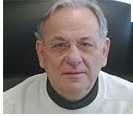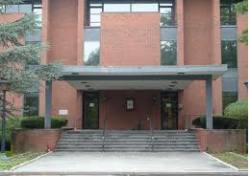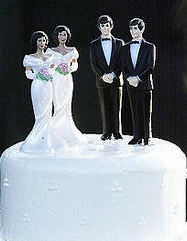The Only Thing We Have to Fear About the Tax Cap is Fear of the Tax Cap Itself. Maybe.
- Details
- Hits: 4132
 This is the last article I’m going to write about the tax cap for a while I think. Much has been written about how it may affect our schools, but not about how it will affect our town. This is the last article for a while about the matter, I promise.
This is the last article I’m going to write about the tax cap for a while I think. Much has been written about how it may affect our schools, but not about how it will affect our town. This is the last article for a while about the matter, I promise.
If you have been following the issue, Albany has voted to limit property tax increases to 2% or the rate of inflation, whichever is lower. Some say this will help small businesses in suburban areas and assist residents who may be suffering from ballooning property taxes. Opponents say that the cap deprives local municipalities of the power to decide how they raise and spend their money. Those against the cap contend that it will not help businesses and residents, but just lead to cuts in services and education.
According to one recent study, if the 2% cap is in place, due to the costs of pensions and healthcare mandates, Westchester County is already $11 million over the property tax increase. In the current Scarsdale Village 2011-2012 budget, expenditures went up just over 6% mainly due to health insurance and pension costs, debt servicing and an increase in assessment appeals.
Local governments like Scarsdale will now have to rely heavily on revenues from sales tax, mortgage taxes and investment income. With the state of the economy as it is there is little reason to believe those receipts will be strong any time soon.
Scarsdale residents can vote to override the tax cap on the school budget with a 60% supermajority. However, for the village budget, monies for police, fire, maintenance and town services are voted on by the Board of Trustees. A supermajority of the board- meaning 4 votes out of 7- would be needed to override the tax cap as well.
If that override doesn’t happen, the town may have to cut jobs, including those of police? Fees could rise, services will go down. But, your property tax will only go up 2%. Big win, right?
Alfred Gatta, the Scarsdale Village manager, has heard all of these concerns, probably more than anyone else in this town:
"If we have to stay within the 2% cap on the tax levy we'd likely have to reduce services and reduce some employees." He notes that a supermajority of the board can vote for an override. But Gatta says fears over the tax cap are probably hurting not helping matters.
"I want to avoid the anxiety that is out there. Everyone is worried and wants to form committees and studies to analyze what to do if the tax cap override doesn't pass. Although I understand that is a fear for every police officer and resident in this time, we do not have the time or money to research everything and have it explored. Let's take a deep breath and see how things come out.”
And Gatta is right. Going on about these matters may be divisive. Individually, one can take issue with each budget line item in the school or Village budget --- from playgrounds to the Mandarin teacher to employee salaries. One by one we can make a case that an item is inessential or too expensive, but taken as a whole, these things add to the overall quality of our community and make Scarsdale what it is.
When it’s time to vote on this issue, think broadly and think long term. That’s it. That’s all I’m going to write about it. Probably.
 Jen Geller is a freelance journalist who has covered the economy and markets for over a decade at a major financial news outlet. She lives in Scarsdale with her husband and 2 children. Jen has yet to bake a successful batch of cookies.
Jen Geller is a freelance journalist who has covered the economy and markets for over a decade at a major financial news outlet. She lives in Scarsdale with her husband and 2 children. Jen has yet to bake a successful batch of cookies.
Planning Board Forwards Affordable Housing and Wetlands Code to the BOT
- Details
- Hits: 5917
 The Planning Board of the Village of Scarsdale referred amendments to the village code on affordable housing and the freshwater wetlands map to the Board of Trustees at their meeting on Wednesday night July 27th. The recommended wording was the outcome of several work sessions and on both matters and the committee gave unanimous approval to forward the recommended code to the trustees.
The Planning Board of the Village of Scarsdale referred amendments to the village code on affordable housing and the freshwater wetlands map to the Board of Trustees at their meeting on Wednesday night July 27th. The recommended wording was the outcome of several work sessions and on both matters and the committee gave unanimous approval to forward the recommended code to the trustees.
Though the Board invited public comment on these issues, they did not make their revised copy available. Without drafts of the new language it was difficult to comment on these changes.
The adoption of the model code is a result of the Westchester County Housing Settlement that requires Westchester County to construct 750 units of affordable housing in 31 eligible communities by 2016. The Planning Board reviewed the code recommended by Federal Monitor James Johnson and made revisions appropriate for Scarsdale. Introducing the recommendation for the code Scarsdale, Planning Board Chair Jane Veron said that the board’s draft clarified the number of required units, integration and occupancy standards and addressed the marketing of the affordable units.
The changes to the Freshwater Wetlands map updates wetlands and controlled areas and expands wetlands requirements to areas that may not be on the map but meet the criteria for wetlands. The code strengthens the ability of the Village to protect these areas.
Village Planner Elizabeth Marrinan said drafts of both the affordable housing and wetlands code revisions would be made available by her office later this week.
Also on the agenda at the meeting:
Golden Horseshoe: Representatives for the owners of the Golden Horseshoe Shopping Center came before the Board to ask for a parking waiver. There are two vacant storefronts in the Scarsdale portion of the shopping center and they would like to rent these to restaurants. Under current code, restaurants require double the number of parking spaces as retail stores. The applicants retained an expert who studied parking at the shopping center at peak times and determined that there is already ample parking and that additional spaces would not be required to accommodate restaurant customers who frequent dining spots at night. Though the management of the shopping center does not have a specific tenants lined up, they wish to make these storefronts available to restaurants and therefore applied for a parking waiver for 23 spots.
They also discussed the possible construction of a third arm of the shopping center to be built to complete the horseshoe. These new stores would be built on the New Rochelle side of the property.
Oxford Road: The Planning Board discussed the assessment of a recreation fee to the purchasers of 39 Oxford Road. The property will be subdivided into two lots and in lieu of dedicating land to the Village, the buyer will be assessed a recreation fee of 5% of the assessed value of the property as shown on the 2006 tax role. At that time the property was valued at $1,850,000 so therefore, they will be assessed $92,500.
Roundabout: Last, the Scarsdale Board of Trustees met on Tuesday morning July 26th, and announced that there will be a presentation of a feasibility study for a roundabout at the Heathcote Five Corners at a Municipal Service Meeting at 6:30 pm on August 8th. The presentation will be given by engineers, Creighton Manning.
Drunk Drivers and a Burglary from the Scarsdale Police
- Details
- Hits: 4655
 Drunk Drivers: Bruce Mitchell, age 61 of Rock Creek Lane was arrested for driving while intoxicated at 7 am on July 22nd. Police were called after Mitchell drove his 2008 BMW off Meadow Road and struck a tree on the front lawn of 32 Meadow Road. He failed sobriety tests and said he did not remember what had happened. He was processed and given a court date of 7/27.
Drunk Drivers: Bruce Mitchell, age 61 of Rock Creek Lane was arrested for driving while intoxicated at 7 am on July 22nd. Police were called after Mitchell drove his 2008 BMW off Meadow Road and struck a tree on the front lawn of 32 Meadow Road. He failed sobriety tests and said he did not remember what had happened. He was processed and given a court date of 7/27.
Michael Savage, age 25 of Dalewood Drive Hartsdale was stopped by police when he was driving 65 mph on the White Plains Post Road at 4:10 am on July 23rd. Police found that Savage appeared to be drunk and he admitted to drinking “at least two Blue Moon beers.” He failed sobriety tests, was arrested and found to have a BAC of .21.
Burglar: A Lyons Road woman returned home on the afternoon of July 22 and discovered that someone had broken into her house. A window on the back of the house had been pried open and her purse and some jewelry were missing. A contractor working in the area had seen a man outside the house earlier in the day and he provided a description of the suspect.
Theft: An employee of Courage B on Spencer Place in Scarsdale complained that her blackberry was stolen from the counter of the store while she was at work on July 18th.
A car belonging to a Lebanon Road man was entered when it was parked in the Christie Place Garage on July 19th. Missing were a cell phone and two power cords.
Fraud: On July 22, a Morris Lane woman reported that her housekeeper had taken three blank checks and deposited them at Bank of America and Chase Bank from 5/19 to 6/22. The woman was alerted to the fraud by Bank of America when the signatures on the stolen checks did not match her own. The three checks were filled out in the amounts of $1,200, $6,000 and $5,000 and the housekeeper admits to taking the checks. The housekeeper was terminated.
On July 19, a Heathcote Road man reported that someone had opened a fraudulent T-Mobile account using his 88 year-old mother’s name, address, date of birth and social security number. The account now has an outstanding balance of $2,039.78 and is delinquent.
Harassed: On 7/18 a Tompkins Road woman filed a complaint of harassment against a Barry Road man who has made phone calls and sent emails stating that the woman’s husband lost hundreds of thousands of dollars of the Barry Road man’s money. The emails were sent to the staff of the center where the woman works. The couple hired a lawyer who asked the man to cease communication but he sent more emails even after he received the lawyer’s letter. All evidence was vouchered and saved by the police.
On July 24th a Brewster Road woman complained of harassment by her housekeeper’s boyfriend via phone and email. The boyfriend contends that the housekeeper is deceptive and “not a good fit.” The complainant’s husband called the man to ask him to stop phoning, but he continued to do so. The boyfriend may also be driving by the house so the residents asked police to keep a watch on their home.
Found: Four bottle of Smirnoff malt liquor and a half full bottle of Hennessey were found in a cooler belonging to carnival employees from Magical Enterprises at Scarsdale High School on July 19th. The cooler was supposed to hold Gatorade for the Recreation Camp employees. On the morning of July 20th, a Magical Enterprises company truck was leaking fuel into the high school parking lot. The truck had to be towed to White Plains.
A Normandy Lane man called police at 8:30 pm on 7/19 when he came home and found kids swimming in his pool. The kids claimed to be friends of the former owners of the house. The man wrote down the names and phone numbers of the swimmers and said he would call their parents.
Spat: Police were called to mediate a dispute between a divorced Madison Road couple on July 20th. The ex-wife feared that her driver’s license would be suspended because her ex-husband was driving an unregistered car that she owned. The car’s registration is suspended and per the divorce agreement the wife was supposed to sign over title to the car but she had not done so. The man verified that he did have insurance on the vehicle, but since it was not registered, police asked the man to drive the car to the gas station and park it. Police impounded the license plates and the man was issued a summons for driving with a suspended registration.
Car Fire: A 2001 Honda owned by a White Plains man burned on Claremont Road on July 20th. The owner of the car said he was driving north on the Bronx River Parkway when the car began to over heat. When he exited at Claremont Road the car caught on fire, starting in the engine and expanding to the inside of the car. The man was able to get out. The fire department extinguished the fire and the car was towed to Roland’s Auto Body in White Plains.
Wrong Way: Michael Damon Ross of Brooklyn was stopped on Boniface Circle in Scarsdale on the afternoon of July 21 when he was driving in the wrong direction. He was also found to have a suspended license and charged with driving in the wrong direction on a one-way street and driving without a license.
Locked Out: An 88 year-old Garden Road woman locked herself out of her house on July 18th. Her neighbor called police to help her get back into her home. A house sitter who was charged with taking care of three dogs at a home on Harvest Drive also locked herself out of the house on July 24th. The fire department was able to get in through a back door.
Coyotes and Drug Busts from the Greenburgh Police
- Details
- Hits: 7512
 Greenburgh police report that there have been several coyote sightings in Edgemont, two on the campus of the high school. Though none of exhibited aggressive behavior, the police have provided the following information about coyotes. See below and read more at: http://www.dec.ny.gov/animals/6971.html
Greenburgh police report that there have been several coyote sightings in Edgemont, two on the campus of the high school. Though none of exhibited aggressive behavior, the police have provided the following information about coyotes. See below and read more at: http://www.dec.ny.gov/animals/6971.html
Coyotes are protected by law in New York State. The Eastern coyote is firmly established in New York where they live as an integral part of our ecosystem. People and coyotes can usually coexist if coyotes maintain their natural fear of people. If you observe a coyote lingering in an area and it does not move when you make noise you should report it to the police. However, in most cases there is little a police officer or animal control officer will be able to do other than chase it away from a populated area. Of course if any animal is acting aggressively or has attacked a human being or other animal, immediately contact the police department.
Below are some steps you can take to reduce/prevent coyote problems from occurring.
- Do not feed coyotes
- If you see a coyote, be aggressive in your behavior - make loud noises, wave your arms, throw sticks and stones.
- Do not allow pets to run free.
- Do not feed pets outside.
- Ensure that your pets are vaccinated against rabies
- Make any garbage inaccessible to coyotes and other animals.
- Eliminate availability of bird seed. Coyotes are attracted to the concentration of birds and rodents that come to feeders. If you do feed birds, clean up waste seed and spillage.
- Fencing your yard may deter coyotes. The fence should be tight to the ground, preferably extending six inches below ground level.
- Remove brush and tall grass from around your property to reduce protective cover for coyotes
- Teach children to appreciate coyotes from a distance.
- Regulated hunting and trapping increases the "fear" coyotes have towards people.
- Ask your neighbors to follow these same steps.
Here is the weekly report from the Greenburgh Police:
Damage: Micha Marom who is building a house on Elizabeth Street complained that $400 worth of tubing used for radiant heat had been cut and was no longer usable. He found the damaged tubing when he came to his work site on the morning of July 11. He has been involved in an ongoing dispute with a neighbor.
Shoplifters: Walgreens employees called Greenburgh police on the afternoon of 7/11 when two men were acting suspiciously at the store. When police arrived, the suspects had left Walgreens on Central Avenue and were driving north in a blue van. Police spotted the van, in front of Rite Aid on Central Avenue. Police went to the van to investigate and found merchandise from Rite Aid in one of the men’s pockets, more merchandise from Rite Aid in the car and unpaid goods from CVS and Toys ‘R Us. The Rite Aid merchandise was valued at $269.07, from CVS $269.49 and the value of the Toys “R Us merchandise was unknown. The suspects were identified as Luis R. Silva age 56, Vidal Gomez, age 31 and Jose Lopez, age 39, all residents of Yonkers.
No Pay: The driver of a tan Toyota Avalon, filled his car with $50 worth of gas from the Gulf Station at 880 Central Avenue on the night of 7/11, and left without paying. Police were unable to find the car.
Missing Bag: The owner of a salon at 19 East Hartsdale Avenue reported that someone entered through the back of the shop and stole her handbag on July 12th. Credit cards, cash, a camera and other items valued at $500 were taken.
Missing diamond: On July 14, a Caterson Terrace woman reported losing a $6,000 diamond ring. She last saw the ring in her house on May 31.
Busted: Remy Ketzler, age 20 of Warnke Lane Scarsdale, was charged with unlawful possession of marijuana at 11 pm on July 14th. Police stopped her outside of 711 on Central Avenue and detected the odor of marijuana. Ketzler pulled a bag out of her purse and handed it to the officer.
In a similar incident, members of the Greenburgh Drug and Alcohol Task Force stopped Kwang An, age 20 of Central Avenue, Scarsdale on the evening of 7/14 when he appeared to be purchasing tobacco products. They smelled marijuana in his car, and An turned over a bag to police. He was also charged with unlawful possession.
At 11:30 pm on 7/15 members of the Greenburgh Drug and Alcohol Task Force saw three people who appeared to be underage carrying alcoholic beverages. When police attempted to stop them, they ran into an apartment at 55 West Hartsdale Avenue. The police were right behind them and when they entered the apartment they found three joints, and two bags containing marijuana and a pipe. The resident at the apartment claimed that all the marijuana belonged to him and turned over 12 more bags containing marijuana. He was charged with possession of marijuana and the other three suspects were charged with possession of alcohol by persons under the age of 21. The suspects were identified as Eurip Kim at 20 or Hartsdale, (possession of marijuana), Justice Reyes age 19 of Hartsdale, Brittany Blake, age 20 of Pleasantville and Paige Maruggi, age 19 of North White Plains (possession of alcohol.)
Same Sex Marriage Licenses to be Issued in Greenburgh and Scarsdale
- Details
- Hits: 4855
 The new law recognizing same-sex marriages goes into effect on Sunday July 24th, and both Greenburgh and Scarsdale will issue same sex marriage licenses and conduct marriage ceremonies. According to Paul Feiner, the Greenburgh Town Clerk’s office will be open on Sunday, July 24th from 12-2 PM to accommodate applicants seeking same sex marriage licenses. Taking her lead from New York City and North Hempstead, Greenburgh Town Clerk Judith Beville will open her office on this historic day to anyone who would like to apply for a license.
The new law recognizing same-sex marriages goes into effect on Sunday July 24th, and both Greenburgh and Scarsdale will issue same sex marriage licenses and conduct marriage ceremonies. According to Paul Feiner, the Greenburgh Town Clerk’s office will be open on Sunday, July 24th from 12-2 PM to accommodate applicants seeking same sex marriage licenses. Taking her lead from New York City and North Hempstead, Greenburgh Town Clerk Judith Beville will open her office on this historic day to anyone who would like to apply for a license.
Couples who take advantage of the opportunity to get a license on Sunday, July 24th will be eligible to marry the following day. In the event that New York State approves a waiver of the 24-hour waiting period the Clerk’s office will also officiate at marriage ceremonies on the same day.
Town Clerk Judith Beville is requesting that couples who intend to obtain their license on the 24th contact her in advance by emailing her at jbeville@greenburghny.com or by phone at 914-993-1504. If there are many people seeking licenses on that date she will try to schedule appointments to reduce waiting time and inconveniences. In the event that there is high demand for licenses to be issued on the 24th the office hours will be extended till 4 PM.
Though Scarsdale Village Hall will not be open on Sunday July 24th, Scarsdale will begin accepting applications for same sex marriage licenses on Monday July 25th. Village Mayor Miriam Flisser and Marriage Officer, former Mayor Carolyn Stevens are both available to officiate at marriages of same-sex couples. Information about obtaining a marriage license is available on the Scarsdale Village website at http://scarsdale.com/Home/Departments/VillageClerk/tabid/54/Default.aspx, and you do not need to be a resident of Scarsdale, or even New York State to apply.
Scarsdale10583 invites same-sex couples getting married in the area to make history by announcing their wedding on the site. Please send photos and information to scarsdalecomments@gmail.com.







